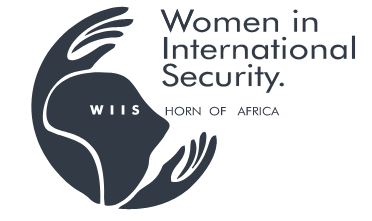Address
Cassia Court Complex , Kiambere Rd , Nairobi Kenya
Work Hours
Monday to Friday: 8AM - 5PM
Address
Cassia Court Complex , Kiambere Rd , Nairobi Kenya
Work Hours
Monday to Friday: 8AM - 5PM
The program organized and led by WIIS-HoA used football as a means of disseminating peace information to other community members from diverse locations. The project was implemented in Garissa, Lamu and Nairobi. As a result, the efforts intended to improve the relationship between security actors and community members, through the interaction process with participants, who included teams of men and women from the community and security personnel as well as government officials and faith-based leaders.
The games were essential for promoting peace, and preaching it, while strengthening ties between the community and security officers. Cleaning the community programs alongside the security sectors and community members would also be a fantastic idea. The friction and fear between the youth and the security sectors could be reduced by organizing joint events where both parties can freely have fun without fear.
During the program in the different areas, Wiis-Hoa and government representatives present emphasized to the community members the significance of cooperation with the security agents forces as a cornerstone to peace that may foster growth and improve people’s quality of life.
Amani Mtaani reached Garissa County, the scene of numerous terrorist strikes. The program was able to connect with the beneficiaries and pinpoint any gaps that needed to be filled. The activities that were put into action centered on the intervention of both parties and emphasized integration and teamwork.
The purpose of this historic occasion especially at Garissa University was to eliminate prejudice, foster trust, and give women a voice in the promotion of safety and security. Organizing the first sports event, known as Amani Mtaani, with teams from the community and security services was a huge joy. It also aimed to give people the confidence to engage, and members were pleased that they could come together and promote peace in a county that was second in terms of the number of terrorist attacks that had occurred in Kenyan history.
Community members expressed their concerns about the activity and their mistrust of the security personnel, which sparked some reactions from them. The were willing to work with the security forces and report any crimes, but there was the need to combat information leakage, selective justice systems, and victimization of the police as well as end the harshness and brutality as being displayed by security personnel.
Lack of proper reporting channels, poor communication, and corruption were some of the primary issues that both parties agreed needed to be addressed in order to restore both parties’ confidence. Setting up community policies to address the misconception is very important, as is the necessity to build mechanisms and laws. For both teams, the collaborative exercise facilitated the realization of the importance of peace and community cohesiveness as a fundamental aspect of collective existence.
The activity concentrated its interventions on strengthening the capabilities of local community and security actors while simultaneously empowering women, by enhancing community protective variables that are connected to resilience. This required uplifting the neighborhood and eliminating the myth that security actors cannot be interacted with. A large number of participants believed that the police were severe, but Amani Mtaani changed their perceptions and at the end of the day community members saw the security actors as normal human beings who they can play a match with. This would indicate that they will not fear to report their security issues to the police.
Recommendations
